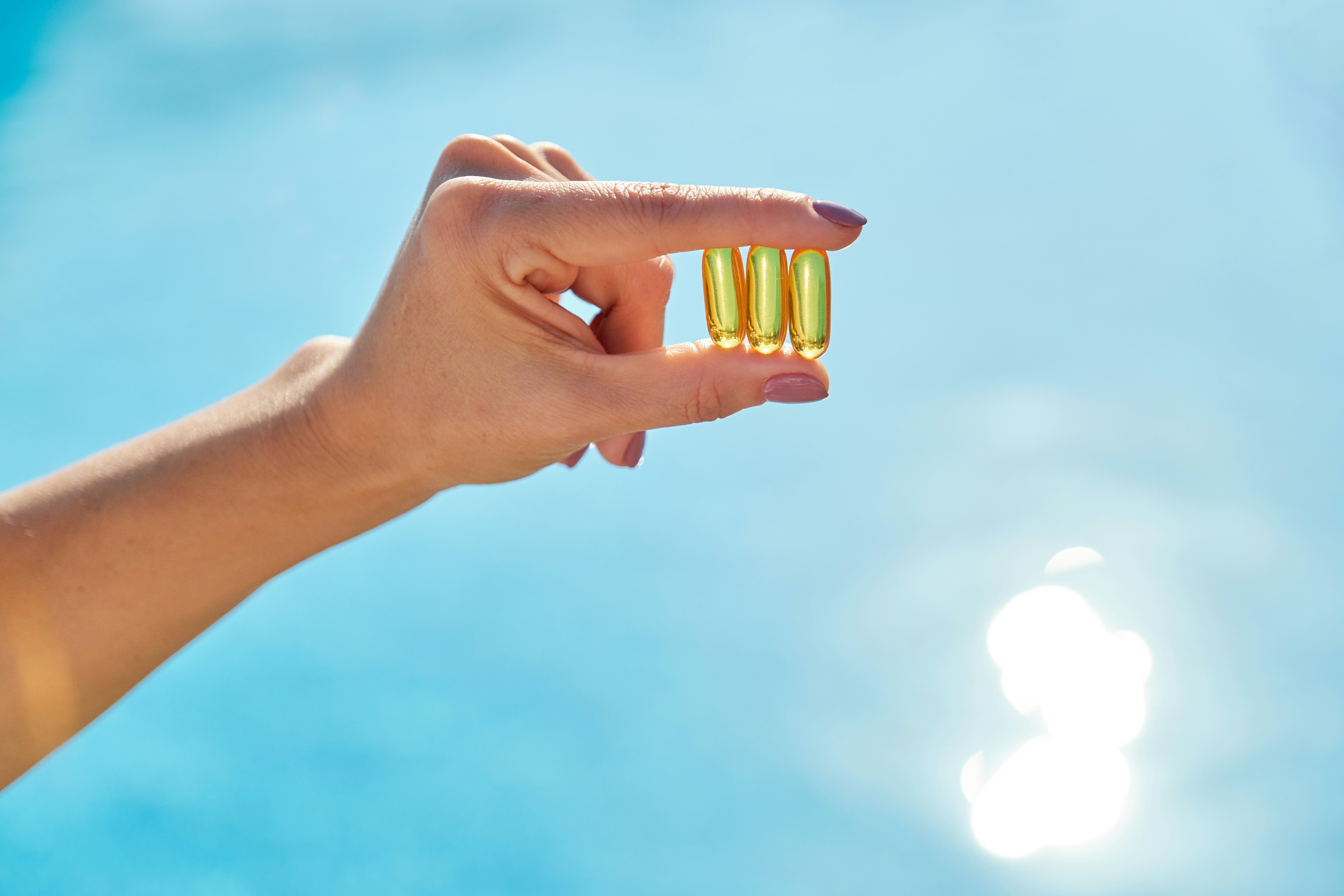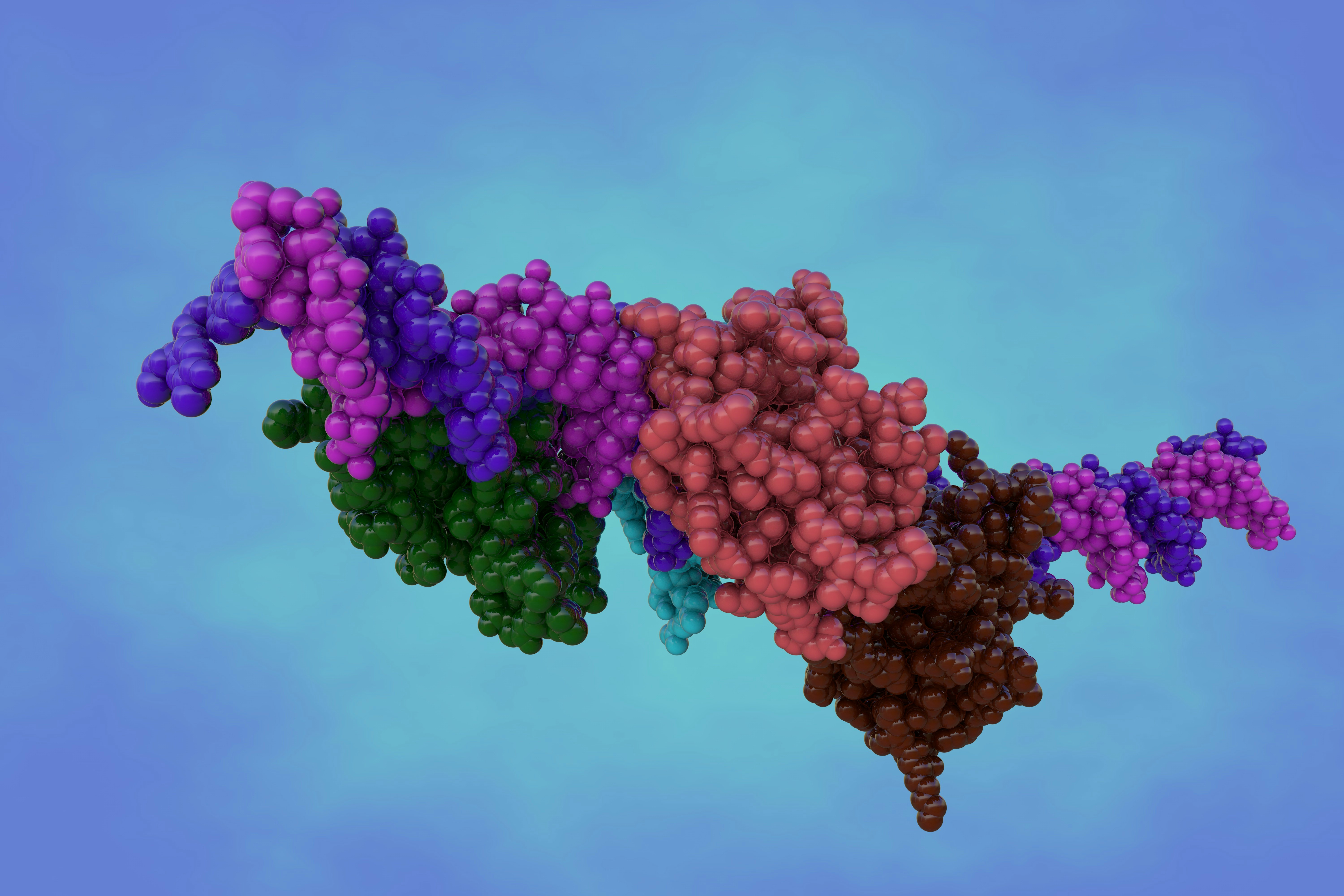
In many pharmacy supplement aisles, vitamin D — the most popular supplement in the U.S. — comes in two varieties, D2 and D3. For decades, most medicals professionals thought that it didn’t matter much which you took. Once activated inside the body, both float into vitamin D receptor sites the same way.
But a glut of recent research has shown that D3 is more effective at elevating vitamin D levels in the bloodstream. Now a study published in Frontiers in Immunology indicates that only D3 helps enable a critical immune system response to bacterial and viral infections.
The same body of research has indicated that it is an either/or choice: High levels of vitamin D2 seem to deplete the body of D3.
“We know that to take vitamin D2 supplement actually displaces the normal, the native D3 from your body,” Colin P. Smith, an author of the study and a professor of genomics at the University of Surrey in the U.K., tells Inverse. “So by taking a vitamin D2 supplement, you could be making yourself vitamin D deficient, certainly in relation to some pathways in the body.”
Science In Action — Over the last ten years, vitamin D has blown up into a health fad, with exponential increases in its consumption (one estimate has it that 20 percent of adults in the U.S. take it) and in blood testing for vitamin D levels.
LONGEVITY HACKS is a regular series from Inverse on the science-backed strategies to live better, healthier, and longer without medicine. Get more in our Hacks index.
We can partially chalk this up to a reaction to startling assessments of the frequency of vitamin D deficiency. One billion people worldwide may have too little due to the mass adoption of a primarily indoor lifestyle that shutters us away from sunlight, the primary natural source of vitamin D. Also, lofty claims of its effects on several conditions, beyond its primary role in bone development, roll around the internet.
Vitamin D is actually not a vitamin but a hormone, and there are five molecules that can do the hormone’s main job in the body. The two main ones, D2 and D3, are usually differentiated by their sources: D2, also known as ergocalciferol, comes from plants, particularly mushrooms and yeast. D3, cholecalciferol, mostly comes from sunlight and animal food sources. Eggs and oily fish are rich in it.
To parse out possible distinct effects of the two, the University of Surrey recruited 335 women, of both European and South Asian ethnicities, and randomly assigned them to groups. Some consumed 15 micrograms (600 international units) of vitamin D2 a day, either in a biscuit or glass of orange juice provided by the researchers. Others took the same amount of D3 through the same food items. Lastly, there was a placebo group. The study took place over 12 weeks during another grey English winter.
“By taking a vitamin D2 supplement, you could be making yourself vitamin D deficient.”
The main finding of that research, published in 2017, was that D3 was more effective in increasing vitamin D levels in the bloodstream. This was not surprising. In 2010, a U.S. study concluded the same. So did ones conducted in New Zealand and Norway and subsequent studies in the U.S. and U.K.
Smith and his associates used some of the blood samples from that study to compare gene expression among the study sects.
A brief overview of how gene expression works: Health factors, like vitamin D consumption, can affect which genes are expressed in the encoding of proteins, which determines how our cells and body function. Biomarkers from blood samples contain information about which genes have been expressed.
The group that took vitamin D3 had expression patterns that showed stimulation of genes associated with interferon activity, a critical part of the immune system’s defense squad to combat bacterial and viral infections. Vitamin D2 had the opposite effect.
“Now, there was a negative correlation,” says Smith. “These genes seem to be suppressed by D2.”
One finding from the 2017 study might make the apparent existence of D3-specific effects even more concerning. After 12 weeks, the D2 supplement group had less D3 in the blood than the placebo group, suggesting that D2 may deplete D3.
“When you get some D2, your natural levels of vitamin D3 are depleted,” says Smith, “so the actual amounts of that — what we consider the good stuff now — it's actually reduced by taking a vitamin D2 supplement.”
How This Affects Longevity — Interferons are released by cells to communicate that a certain cell is under attack, causing nearby cells to raise their defenses. They coordinate the defenses against an infection and interfere with viruses and bacteria by helping to block them from the cells they need to replicate. (Hence the name interferons.)

Some research has indicated that low interferon levels are associated with severe cases of Covid-19, which would make sense given their virus-fighting capacities.
Why It’s a Hack — This is not the only study that found an effect, other than potency, that seemed to elevate vitamin D3 over D2.
Some research indicates that only D3 is correlated with lowered risk of cancer death. A study published last year showed high D3 levels were correlated to less severe depression symptoms while D2 levels had no statistically significant relationship.
After ten years of research trouncing it, you might wonder why vitamin D2 supplements haven’t been dubbed obsolete and yanked off pharmacy shelves.
D3 supplements are usually derived from sheep’s wool, making them an animal product unsuitable for vegans or some people with religious dietary restrictions. (If you hunt around, you can find vegan D3 made from lichen, an algae/fungus plant organism.)
Also, some medical professionals are not convinced that it gets much better end results. From the Cleveland Clinic’s blog: “D3 may be a little more potent than D2, but there’s not a huge difference, so either is fine.”
It also should be noted that, while vitamin D receptors intriguingly appear throughout the body, medical authorities only agree, more or less, on one goal for use: upping vitamin D levels improves bone strength. Other findings only suggest benefits for cognitive, cardiovascular, and immune system health.
The immune system effects outlined in the new study are inconclusive. The data “suggests that further investigation … is warranted,” it states.
This is probably not forthcoming soon, says Smith, because of the $1.5 million price tag for a comprehensive clinical trial comparing D3 to D2 to a placebo with thousands of ethnically diverse participants.
On that note: The effect on gene transcription was limited to the white participants in this study and did not show up in the women of South Asian ethnicities. White people have often been shown to be more vitamin D deficient in academic research.
If D3 really is the better vitamin D, you are probably not getting it through fortification in the food supply, the first and still most common way in which the industrialized world has dealt with mass deficiencies. That almost exclusively relies on D2.

Starting in the 1930s, medical authorities successfully pressured food suppliers to fortify their products with vitamin D, slipping it into bread, breakfast cereal, orange juice, and especially milk. They mostly use D2, derived from fungus, which is cheaper to produce.
Smith says that it is obvious that D3 is the better choice when supplement shopping.
“Well, we will put it this way: If you're faced with taking a vitamin that your body naturally produces or taking a vitamin that’s made by shining ultraviolet light on mushrooms, what would you take?” He adds that until very recently in their history, humans consumed very little D2 “compared to D3. It could be that D2 has no real physiological role in humans.”
After millennia of evolving in the sunlight, synthesizing a healthy load of D3, humans started relying on D2 only a century ago, making any differences between the two starkly important.
Hack Score — 4 out of 10 fighting cytokines 🧬🧬🧬🧬







